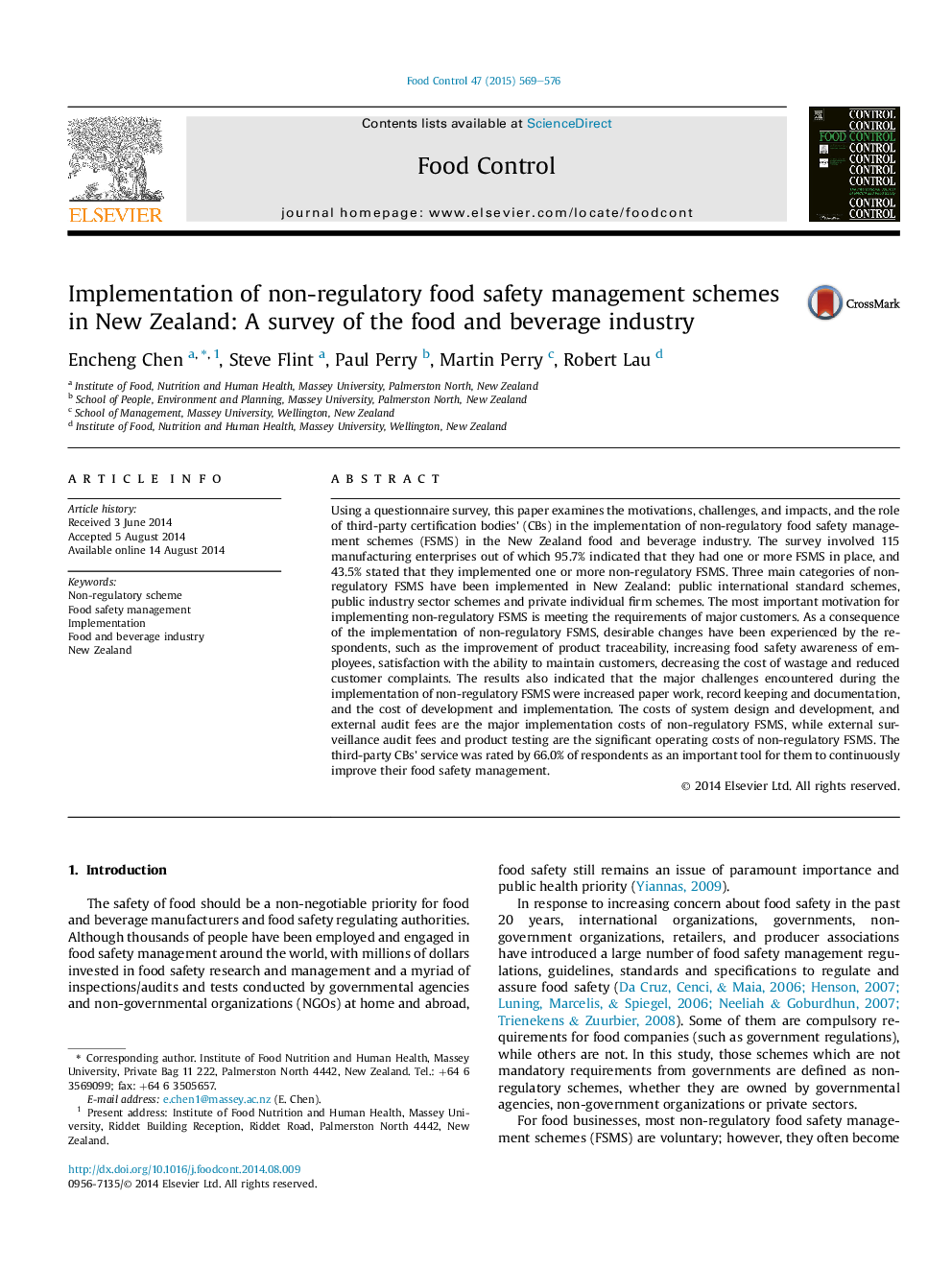| Article ID | Journal | Published Year | Pages | File Type |
|---|---|---|---|---|
| 6391494 | Food Control | 2015 | 8 Pages |
Abstract
Using a questionnaire survey, this paper examines the motivations, challenges, and impacts, and the role of third-party certification bodies' (CBs) in the implementation of non-regulatory food safety management schemes (FSMS) in the New Zealand food and beverage industry. The survey involved 115 manufacturing enterprises out of which 95.7% indicated that they had one or more FSMS in place, and 43.5% stated that they implemented one or more non-regulatory FSMS. Three main categories of non-regulatory FSMS have been implemented in New Zealand: public international standard schemes, public industry sector schemes and private individual firm schemes. The most important motivation for implementing non-regulatory FSMS is meeting the requirements of major customers. As a consequence of the implementation of non-regulatory FSMS, desirable changes have been experienced by the respondents, such as the improvement of product traceability, increasing food safety awareness of employees, satisfaction with the ability to maintain customers, decreasing the cost of wastage and reduced customer complaints. The results also indicated that the major challenges encountered during the implementation of non-regulatory FSMS were increased paper work, record keeping and documentation, and the cost of development and implementation. The costs of system design and development, and external audit fees are the major implementation costs of non-regulatory FSMS, while external surveillance audit fees and product testing are the significant operating costs of non-regulatory FSMS. The third-party CBs' service was rated by 66.0% of respondents as an important tool for them to continuously improve their food safety management.
Related Topics
Life Sciences
Agricultural and Biological Sciences
Food Science
Authors
Encheng Chen, Steve Flint, Paul Perry, Martin Perry, Robert Lau,
